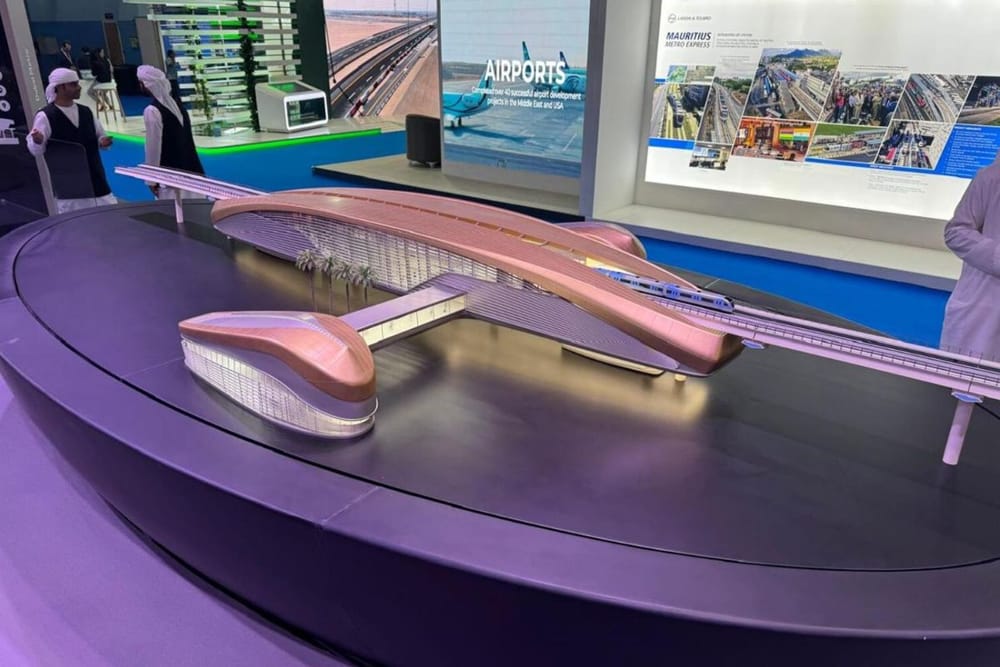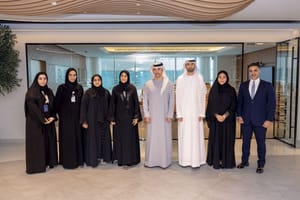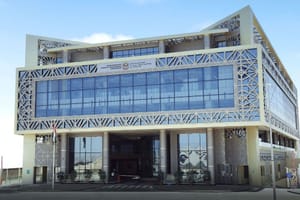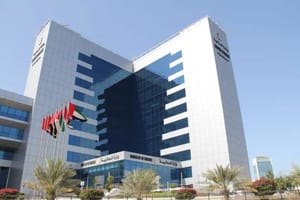Dubai is set to revolutionize its public transport system with the introduction of the new Blue Line metro stations. These stations will showcase a sleek, futuristic design that stands apart from the existing fully enclosed stations on the Red and Green Lines.
A model of one of these innovative stations was recently displayed at the Roads and Transport Authority (RTA) stand during Tuesday's Global Rail Conference held in Abu Dhabi.
The design features a smooth, curved structure with a prominent oval-shaped enclosure that arches gracefully over the main platform and tracks. This aesthetic enhances the visual appeal and ensures that the stations integrate seamlessly into Dubai's modern urban landscape. The side structures, which serve as exits on either side of the station, further complement the futuristic design with their symmetrical and curved elements.
A key highlight of the Blue Line is the impressive 1,300-meter-long viaduct that will elevate the railway as it spans Dubai Creek, providing a vital link between Al Jaddaf, Dubai Festival City, and Dubai Creek Harbour. This new connection is expected to significantly reduce travel time for commuters, enhancing the overall efficiency of Dubai's transportation network.

The Blue Line, which is projected to be completed by 2029, will extend 30 kilometers and will serve as a crucial integration point for the existing Red and Green Lines. This development aligns with the Dubai 2040 Urban Master Plan, which aims to create a '20-minute city' where residents can access essential services within a 20-minute journey.
The Global Rail Conference brought together over 150 senior representatives, including ministers, industry leaders, and stakeholders, to discuss the future of rail transport across the country. The event also featured an Innovation Hub, showcasing disruptive technologies and cutting-edge digital solutions that promise to transform the mobility, transportation, and logistics sectors.

One of the standout technologies presented was a smart maintenance system developed by researchers at the Technology Innovation Institute. This system utilizes smart sensors mounted on various train wagons to collect data, providing continuous insights into track conditions. It can detect maintenance needs and classify them into five categories based on severity, leveraging a physics-based, data-driven model.
“Using artificial intelligence, we can check for issues like sand contamination, track stiffness, and broken sleepers. Even if it is accurate just 50 percent of the time, it can significantly reduce maintenance costs,”
explained Prabhakaran Balasubramanian, one of the researchers involved.
News Source: Khaleej Times









